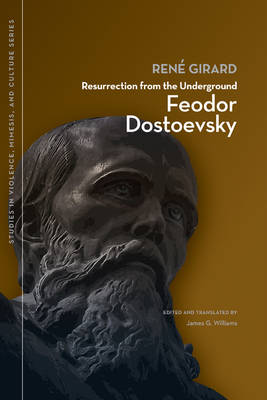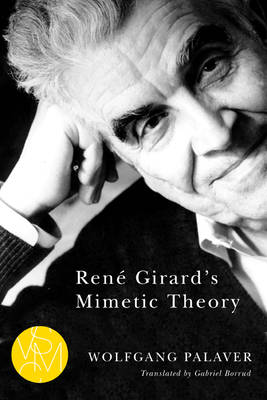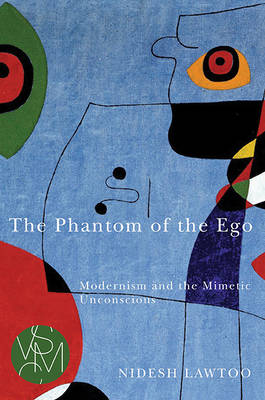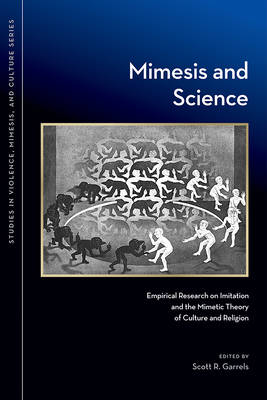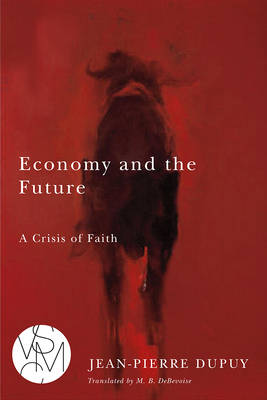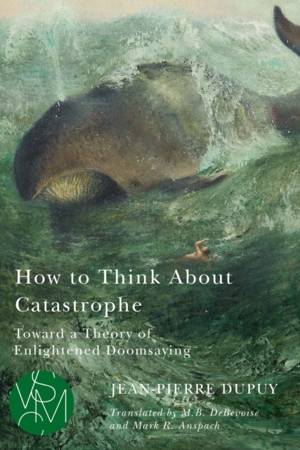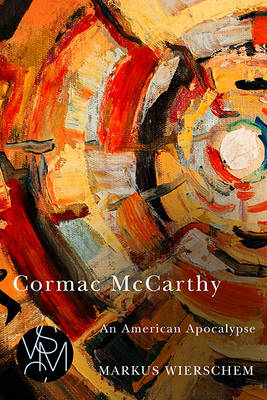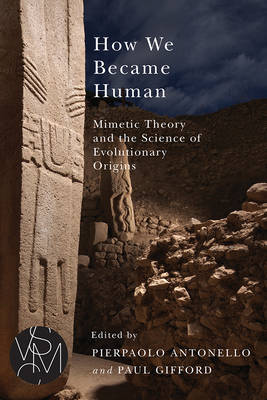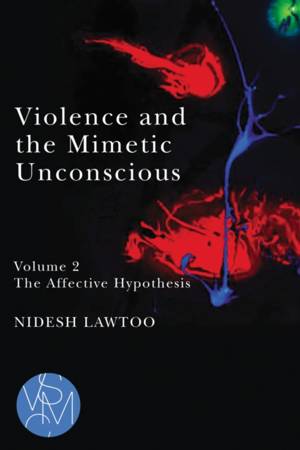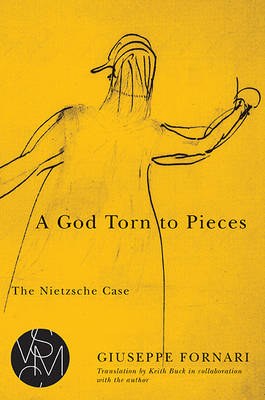
- Retrait gratuit dans votre magasin Club
- 7.000.000 titres dans notre catalogue
- Payer en toute sécurité
- Toujours un magasin près de chez vous
- Retrait gratuit dans votre magasin Club
- 7.000.0000 titres dans notre catalogue
- Payer en toute sécurité
- Toujours un magasin près de chez vous
-
Resurrection from the Underground
René Girard
- Livre broché | Anglais | Studies in Violence, Mimesis & Culture
- In a fascinating analysis of critical themes in Feodor Dostoevsky's work, René Girard explores the implications of the Russian author's "underground,"... Savoir plus
34,95 €Livraison 1 à 4 semaines34,95 €Livraison 1 à 4 semaines -
René Girard's Mimetic Theory
Wolfgang Palaver
- Livre broché | Anglais | Studies in Violence, Mimesis & Culture
- A systematic introduction into the mimetic theory of the French-American literary theorist and philosophical anthropologist René Girard, this essentia... Savoir plus
41,95 €Livraison 2 à 3 semaines41,95 €Livraison 2 à 3 semaines -
The Phantom of the Ego
Nidesh Lawtoo
- Livre broché | Anglais | Studies in Violence, Mimesis & Culture
- The Phantom of the Ego is the first comparative study that shows how the modernist account of the unconscious anticipates contemporary discoveries abo... Savoir plus
41,95 €Livraison 1 à 4 semaines41,95 €Livraison 1 à 4 semaines -
The World of René Girard
- Livre broché | Anglais | Studies in Violence, Mimesis & Culture
- In 1988, Nadine Dormoy conducted a series of interviews with René Girard at a pivotal moment in his career, just after a number of books and conferenc... Savoir plus
59,45 €Livraison 2 à 3 semaines59,45 €Livraison 2 à 3 semaines -
Mimesis and Science
Garrels Scott
- Livre broché | Anglais | Studies in Violence, Mimesis & Culture
- This exciting compendium brings together, for the first time, some of the foremost scholars of René Girard's mimetic theory, with leading imitation re... Savoir plus
34,95 €Livraison 1 à 4 semaines34,95 €Livraison 1 à 4 semaines -
Toward an Islamic Theology of Nonviolence
Adnane Mokrani
- Livre broché | Anglais | Studies in Violence, Mimesis & Culture
- This groundbreaking book offers the first systematic study of the Qur'ān and Islamic history in the light of René Girard's mimetic theory. Girard did ... Savoir plus
43,45 €Livraison 1 à 2 semaines43,45 €Livraison 1 à 2 semaines -
A Refuge of Lies
Cesáreo Bandera
- Livre broché | Anglais | Studies in Violence, Mimesis & Culture
- Erich Auerbach's seminal Mimesis: The Representation of Reality in Western Literature was published more than sixty years ago and is deservedly consid... Savoir plus
27,95 €Livraison 1 à 4 semaines27,95 €Livraison 1 à 4 semaines -
Giving Life, Giving Death
Lucien Scubla
- Livre broché | Anglais | Studies in Violence, Mimesis & Culture
- Although women alone have the ability to bring children into the world, modern Western thought tends to discount this female prerogative. In Giving Li... Savoir plus
27,95 €Livraison 1 à 4 semaines27,95 €Livraison 1 à 4 semaines -
Can We Survive Our Origins?
Antonello Pierpaolo
- Livre broché | Anglais | Studies in Violence, Mimesis & Culture
- Are religions intrinsically violent (as is strenuously argued by the 'new atheists')? Or, as Girard argues, have they been functionally rational instr... Savoir plus
34,95 €Livraison 1 à 4 semaines34,95 €Livraison 1 à 4 semaines -
Economy and the Future
Jean-Pierre Dupuy
- Livre broché | Anglais | Studies in Violence, Mimesis & Culture
- A monster stalks the earth--a sluggish, craven, dumb beast that takes fright at the slightest noise and starts at the sight of its own shadow. This mo... Savoir plus
27,95 €Livraison 1 à 4 semaines27,95 €Livraison 1 à 4 semaines -
Intimate Domain
Martha J Reineke
- Livre broché | Anglais | Studies in Violence, Mimesis & Culture
- For René Girard, human life revolves around mimetic desire, which regularly manifests itself in acquisitive rivalry when we find ourselves wanting an ... Savoir plus
41,95 €Livraison 1 à 4 semaines41,95 €Livraison 1 à 4 semaines -
The One by Whom Scandal Comes
René Girard
- Livre broché | Anglais | Studies in Violence, Mimesis & Culture
- "Why is there so much violence in our midst?" René Girard asks. "No question is more debated today. And none produces more disappointing answers." In ... Savoir plus
27,95 €Livraison 1 à 4 semaines27,95 €Livraison 1 à 4 semaines -
How to Think about Catastrophe
Jean-Pierre Dupuy
- Livre broché | Anglais | Studies in Violence, Mimesis & Culture
- During the last century humanity acquired the ability to destroy itself. The direct approach to destruction can be seen in such facts as the ever-pres... Savoir plus
43,45 €Livraison 1 à 2 semaines43,45 €Livraison 1 à 2 semaines -
Evolution of Desire
Cynthia L Haven
- Livre broché | Anglais | Studies in Violence, Mimesis & Culture
- René Girard (1923-2015) was one of the leading thinkers of our era--a provocative sage who bypassed prevailing orthodoxies to offer a bold, sweeping v... Savoir plus
41,95 €Livraison 1 à 4 semaines41,95 €Livraison 1 à 4 semaines -
Cormac McCarthy
Markus Wierschem
- Livre broché | Anglais | Studies in Violence, Mimesis & Culture
- This definitive assessment of Cormac McCarthy's novels captures the interactions among the literary and mythic elements, the social dynamics of violen... Savoir plus
111,95 €Livraison 2 à 3 semaines111,95 €Livraison 2 à 3 semaines -
How We Became Human
- Livre broché | Anglais | Studies in Violence, Mimesis & Culture
- From his groundbreaking Violence and the Sacred and Things Hidden since the Foundation of the World , René Girard's mimetic theory is presented as elu... Savoir plus
41,95 €Livraison 1 à 4 semaines41,95 €Livraison 1 à 4 semaines -
Flesh Becomes Word
David Dawson
- Livre broché | Anglais | Studies in Violence, Mimesis & Culture
- Though its coinage can be traced back to a sixteenth-century translation of Leviticus, the term "scapegoat" has enjoyed a long and varied history of b... Savoir plus
27,95 €Livraison 1 à 4 semaines27,95 €Livraison 1 à 4 semaines -
Violence and the Mimetic Unconscious, Volume 2
Nidesh Lawtoo
- Livre broché | Anglais | Studies in Violence, Mimesis & Culture
- Representations of violence have subliminal contagious effects, but what kind of unconscious captures this imperceptible affective dynamic in the digi... Savoir plus
31,95 €Livraison 1 à 2 semaines31,95 €Livraison 1 à 2 semaines -
A God Torn to Pieces
Giuseppe Fornari
- Livre broché | Anglais | Studies in Violence, Mimesis & Culture
- Giuseppe Fornari's groundbreaking inquiry shows that Friedrich Nietzsche's neglected importance as a religious thinker and his "untimeliness" place hi... Savoir plus
34,95 €Livraison 1 à 4 semaines34,95 €Livraison 1 à 4 semaines -
The Mimetic Brain
Jean-Michel Oughourlian
- Livre broché | Anglais | Studies in Violence, Mimesis & Culture
- The discovery of mirror neurons in the 1990s led to an explosion of research and debate about the imitative capacities of the human brain. Some herald... Savoir plus
34,95 €Livraison 1 à 4 semaines34,95 €Livraison 1 à 4 semaines -
Battling to the End
René Girard
- Livre broché | Anglais | Studies in Violence, Mimesis & Culture
- Carl von Clausewitz (1780-1831), the Prussian military theoretician who wrote On War , is known above all for his famous dictum: "War is the continuat... Savoir plus
31,95 €Livraison 1 à 2 semaines31,95 €Livraison 1 à 2 semaines
21 sur 21 résultat(s) affiché(s)





